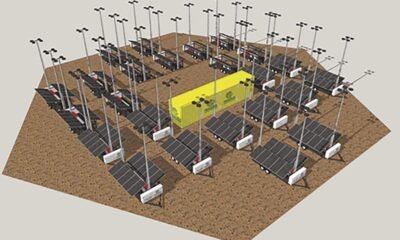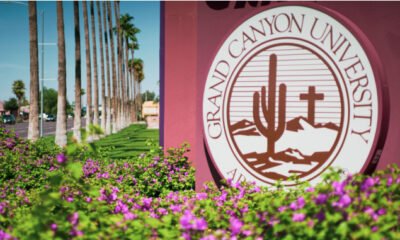Arizona Corporation Commission
Polachek Aims to Hold ACC Accountable

The Arizona Corporation Commission, responsible for regulating utility companies and overseeing rates, is poised for a significant shift as three of its five seats will be contested on the November ballot. Currently, the commission consists of four Republicans and one Democrat.
Candidates for the upcoming election include Democrats Ylenia Aguilar, Jonathon Hill, and Joshua Polacheck; Republicans Rene Lopez, incumbent Lea Marquez Peterson, and Rachel Walden; and Green Party representatives Mike Cease and Nina Luxenberg. Voters will cast their ballots on November 5.
Joshua Polacheck, a Democratic candidate who previously identified as a lifelong Republican, campaigned in Sedona on October 6. He describes himself as a moderate to conservative Democrat, expressing concern over the current incentives for energy development that favor fossil fuels.
“The current model incentivizes costly technology tied to global commodity chains,” Polacheck noted. He criticized how utilities pass operational costs, particularly for coal and methane, directly onto consumers. This model discourages accountability and transparency in rate settings.
Polacheck emphasized that the commission should prioritize the overall cost of energy rather than just initial expenses. He highlighted that as Arizona relies heavily on natural gas from neighboring states, the economic potential is compromised as funds flow out of the state.
The candidate shared his unique background, which includes attending reservation schools across various states before settling in Tucson. His career includes 17 years with the U.S. Department of State, where he served as a spokesperson in Mosul, Iraq. Polacheck believes his national security experience can benefit Arizona’s economic landscape within the commission.
“The decisions made by the Corporation Commission will impact Arizona’s economy for decades,” he stated, underscoring the importance of long-term planning in energy policy.
He referenced his experiences in Jamaica, where reliance on global commodities has led to economic instability, mirroring trends seen in Arizona’s rising utility rates. Polacheck criticized recent rate cases that permitted Arizona Public Service to raise rates by approximately 8%, and he pointed to an alarming nearly 50% rate increase requested by Arizona Water Co.
Marquez Peterson, the incumbent, defended the commission’s efforts during a September 3 debate. “We must provide just and reasonable rates,” she stated, acknowledging the numerous rate cases handled each year. Although a Wallet Hub survey ranks Arizona as having the second-lowest combination of utility costs nationally, other analyses contest this view, highlighting that average electrical bills in Arizona are among the highest in the nation.
The upcoming election represents a pivotal moment for the Arizona Corporation Commission as candidates present their visions for a more sustainable and economically sound energy future.


















